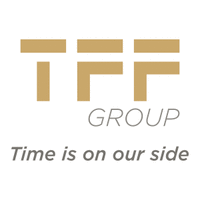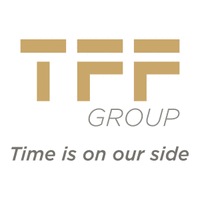Before diving into our new series, our sponsor is Koyfin.
I use Koyfin every day. From staying on top of company news to the most advanced screener you can find, it’s an incredibly good investing tool. My personal favorite is the customized financial templates. Using Koyfin’s shortcuts, I can pull up revenue, gross profit, EBIT, FCF, net debt, goodwill, ROIC, and working capital dynamics for any company in seconds.
Because you’re a Business Breakdowns reader, use the button below to get 10% off on a plan today!
One interview I watched a few years ago still sticks in my mind. It was with the Chairman of Edelweiss Holdings, Tony Deden. Edelweiss, presumably because of Mr. Deden, does things differently. It’s a multi-family office that don’t actively go out to raise money. They hold physical gold instead of cash. They invest in public securities with a multi-decade time horizon. And they think deeply about a business's resilience. After watching the interview and reading some of Edelweiss’s writings, you’ll get a sense of this. This theme of resilience is something I want to explore over the coming months. And what better way to get a training course in this than going over Edelweiss’s public stock portfolio? So that’s what we’re going to do.
This will be the first in many mini-series’ that I hope to start writing. I think it would be great, in the wise words of Stan Druckenmiller, to read every 10-k in an industry to really understand it. I don’t yet know what the format will be but there will probably be individual breakdowns, with a big summary at the end of the series. That way, I am still getting content out rather than working for months and putting out one piece.
Back to Edelweiss. We will be breaking down 10 companies that *I think* Edelweiss holds. Disclaimer #1 — the investment company’s portfolio isn’t public so these aren’t 100% verified but here is what I’ve found through some digging. Disclaimer #2 — these 10 are not all of the holdings of Edelweiss, just the ones we’ll focus on.
Without further ado, here are the 10 companies that we’re going to study over the next several months:
TFF Group (TFF)
Lotus Bakeries (LOTB)
Bakkafrost (BAKKA)
Ems-Chemie (EMSN)
Robertet (RBT)
Emmi (EMMN)
Hal Trust (HAL)
Franco-Nevada (FNV)
Seaboard (SEB)
Bucher (BUCN)
Ever heard of any of ‘em? Yeah, me neither (just #8). But that’s the point. Studying these companies will be a crash course in resilience. The few things I’ve gathered so far about Edelweiss’s view on resilience is that optimization tends to be a counterproductive force. For example, levering up the balance sheet of a steady company makes it more fragile. There needs to be a little slack in the system to make up for unusual circumstances. And owners understand this. True owners focus on longevity because if the business doesn’t survive, nothing else matters. The first rule is survival. So Edelweiss loves looking for businesses that have been family run for generations. These companies think very differently from a career CEO that is trying to cash in some stock options.
From a practical financial perspective, resilience looks like profitability even during downturns, an “unoptimized” balance sheet (I put unoptimized in quotes because it depends on what you’re optimizing for. If it’s for longevity, a large cash position may very well be optimal), and steady profit growth as the company continues to be relevant and solve problems for customers. After all, it’s pretty difficult to go bankrupt if you’re profitable and don’t owe anyone anything.
From a philosophical perspective, resilience looks like thinking ahead, diversifying revenue streams, always valuing customers, doing hard things that competitors aren’t willing to do, cultivating an ownership mindset among employees through actual ownership and long-term thinking, delivering on promises, leaving customers feeling like they are getting good value for their money, and many other things.
With that as the backdrop, strap in and let’s get into our first series, starting with TFF Group, a maker of barrels. This is going to be awesome!
TFF Group
The TFF Group (Tonnellerie François Frères; Tonnellerie means cooperage and a cooper is a barrel maker) actually consists of 26 different businesses, all related to making alcohol. The original cooperage was founded by Joseph Francois in 1910 in Saint Romain, a town in the region of Burgundy. Then in 1917, his sons, Robert and Henry, carried on the family business. Later in 1959, Jean Francois led the third generation and expanded the business to Italy and even California. In 1989, Jerome Francois took the reins as the fourth generation of barrel makers and is the current CEO. Today, the Francois family owns about 71% of outstanding shares.
When thinking about resilience, that’s the first thing you notice — owners breed resilience. If a business has been in the family for more than a century, you would feel a huge pressure to make sure you pass it on. Maximizing EPS growth wouldn’t necessarily be the number one issue on your mind. Your family is already extremely wealthy, you just want to leave the business in a stronger place than when you inherited it.
To get a sense of how resilient TFF Group is, let’s go through each of the business categories to see just how vertically integrated the company is.
Vertical Integration
Starting from the raw material, TFF Group owns a lumber company in the Retz Forest, called Idelot. This was established in 1989 and only the best oak logs are used for staves, which are the sides of the barrel. Each log is cut about three and a half feet in length and the other species of wood is sold to furniture makers across Europe. But the best oak is kept for the barrels.
Then the wood is sent to the three stave mills that the group owns, Sciage du Berry, Troncais Bois Merrains, and Sogibois. Here the logs are cut down to the precise stave measurements and then stacked and aired, on average, for about 30 months. The company is very particular about its natural, open-air drying process, which differentiates it from competitors that use sprinklers and humid rooms. TFF’s stave mills are in the perfect climate for this activity.
Then the company distributes its staves to its cooperages, 13 of which produce barrels for wine and 7 that produce barrels for whisky and bourbon. [As an aside, scotch is whisky that is aged in oak barrels for at least three years and produced in Scotland and bourbon is a corn-based whisky that is made in the US.] The wine group includes the original business, Francois Frères Cooperage. Still located in Saint Romain, the company has now been around for 113 years. Now that’s resilience!
Lastly, the company owns three oenology (study of winemaking) companies and three companies that make casks (large barrels) and vats (stainless steel for younger wines).
Of these 26 business units, six are at least a century old. While that’s impressive, what really blows me away is the level of vertical integration. The group owns the forest, three mills, and more than 20 cooperages that are near their customers. Vertical integration is more capital intensive but it tends to be more resilient because there are fewer chokepoints in the value chain. For instance, when there was a heavy frost in France in April of 2021, the company took a hit but it owned the forest so it could absorb some of that cost as things ramped back up. Resilient companies trade off seemingly inefficient uses of capital like owning the entire supply chain for longevity. As I said before, it’s the difference between optimizing for the short term and optimizing for the ultra long term. There are often trade-offs, like lower margins in the short term but customer loyalty in the long run.
Breaking Down the Business
Their customers are obviously wine and spirits producers. And the quality of TFF’s barrels is very difficult to replicate. It can take more than three years just to air dry the wood for the barrels and then wine can be aged for decades so that’s why the group’s tagline is “Time is on our side”. You don’t know the French proverb that goes like this? – “the best time to start a cooperage was 113 years ago and the second best time is now” 😅
The business is split about 50/50 between wine and alcohol, the latter which is primarily made up of whiskey and bourbon barrels. Wine barrels account for 51%, 34% for bourbon and 15% for regular whisky. And 51% of revenue comes from the US – remember that bourbon has to come from the US – and fun fact, 75% of all bourbon production takes place in Kentucky. Then 36% of sales come from Europe, with France accounting for 13% of that.
At the end of fiscal 2023, the company did $460 million in revenue with 40% gross margins and 18% EBIT margins. Overall sales growth was 35% as the company bounced back from the 2021 frost and California wildfires. TFF’s bourbon sales were also limited during COVID as the number of barrels troughed at 320,000 and last year, returned to 650,000 barrels this year. So the last three years have been quite an anomaly based on natural circumstances. Despite this, the last five years of EBIT margins have been:
18%
16%
14%
13%
18%
Not too shabby!
The company’s free cash flow moves around quite a bit because the company carries a rather large amount of inventory since the staves need to dry for such a long time. The group is also not shy about capital expenditures as it's currently bolstering its bourbon presence through new facilities.
Lastly, what you also have to understand about this particular business is that it’s extremely sticky. The barrel goes a long way with influencing the taste of the alcohol. So if a producer has been using a barrel from a TFF company and they decide to switch, they run the risk of changing the flavor profile of the alcohol. And that is a huge risk, for likely not much in cost savings.
Wrapping It Up
All in all, TFF Group is a great example of a resilient company as it has lasted more than a century. Two contributing factors that stick out are the family ownership and vertical integration. Making barrels seems like a boring business but it’s crucially important in the process of making alcohol. It might not be optimally efficient in the short run to own all the pieces of the value chain, but the tradeoff is more resilience. And it seems like TFF Group will take that tradeoff every time.
A Chance To Win
If you enjoyed this write-up, please turn that ♡ into a ♥️. If you do so, we’ll throw your name into a hat and every month, we’ll pick one lucky winner to get 3 free months of our Dynasty Membership ($177 value)
Looking for Something?
Need help with research? — (Dynasty Membership)
Looking to invest in the highest-quality companies in the world? — (Infuse Partners; intro call)
Want to learn more about investing? — (The Investing City Podcast, online course, and blog)
Interested in advertising? — (Complete this form)



